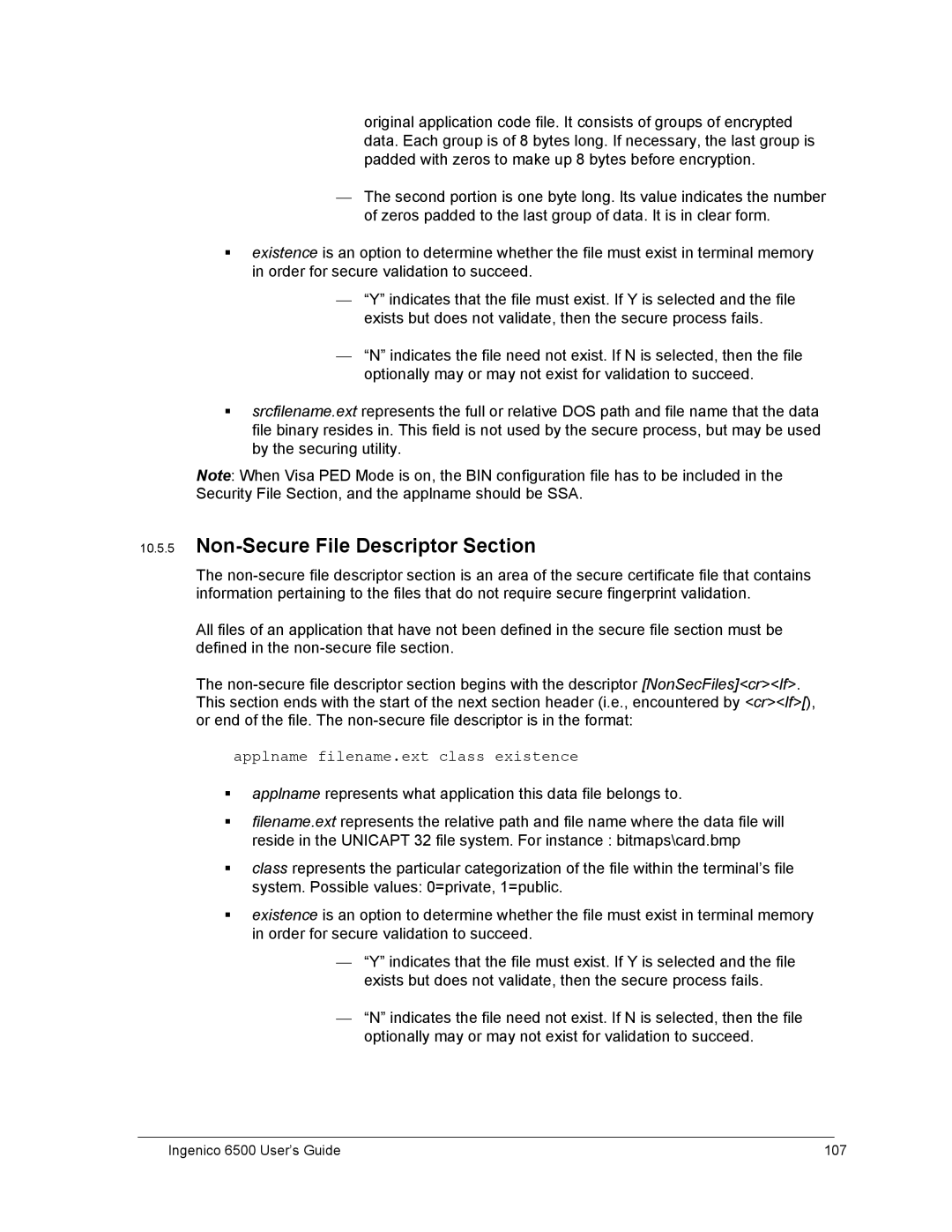original application code file. It consists of groups of encrypted data. Each group is of 8 bytes long. If necessary, the last group is padded with zeros to make up 8 bytes before encryption.
—The second portion is one byte long. Its value indicates the number of zeros padded to the last group of data. It is in clear form.
existence is an option to determine whether the file must exist in terminal memory in order for secure validation to succeed.
—“Y” indicates that the file must exist. If Y is selected and the file exists but does not validate, then the secure process fails.
—“N” indicates the file need not exist. If N is selected, then the file optionally may or may not exist for validation to succeed.
srcfilename.ext represents the full or relative DOS path and file name that the data file binary resides in. This field is not used by the secure process, but may be used by the securing utility.
Note: When Visa PED Mode is on, the BIN configuration file has to be included in the Security File Section, and the applname should be SSA.
10.5.5Non-Secure File Descriptor Section
The
All files of an application that have not been defined in the secure file section must be defined in the
The
applname filename.ext class existence
applname represents what application this data file belongs to.
filename.ext represents the relative path and file name where the data file will reside in the UNICAPT 32 file system. For instance : bitmaps\card.bmp
class represents the particular categorization of the file within the terminal’s file system. Possible values: 0=private, 1=public.
existence is an option to determine whether the file must exist in terminal memory in order for secure validation to succeed.
—“Y” indicates that the file must exist. If Y is selected and the file exists but does not validate, then the secure process fails.
—“N” indicates the file need not exist. If N is selected, then the file optionally may or may not exist for validation to succeed.
Ingenico 6500 User’s Guide | 107 |
